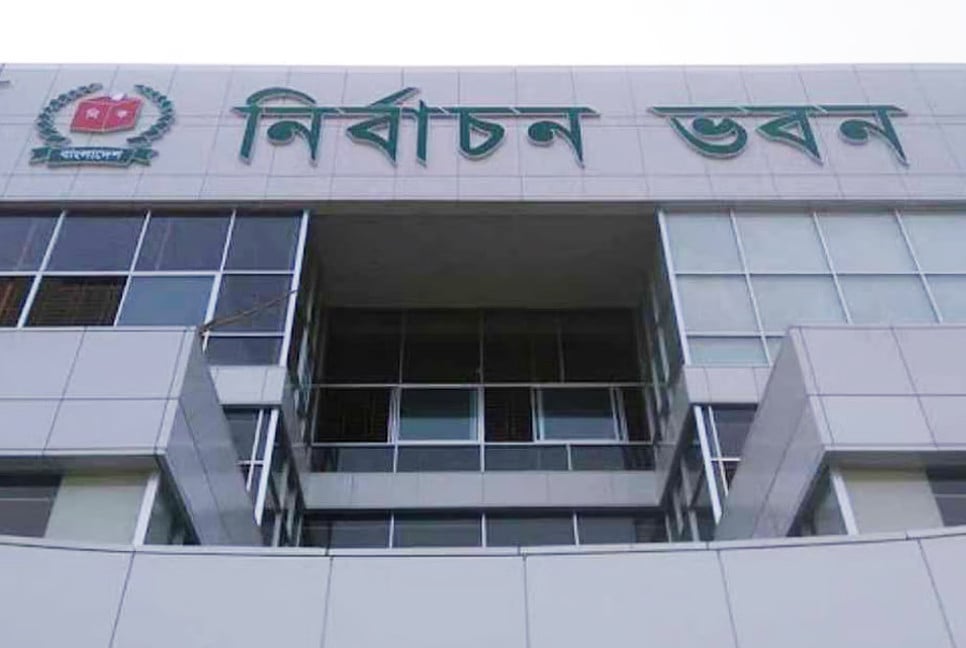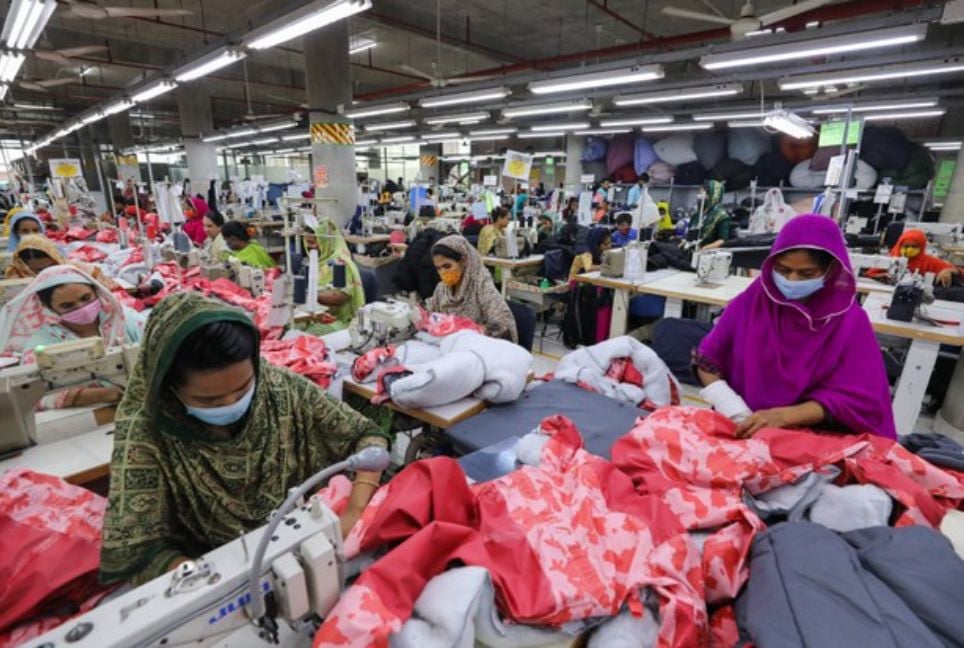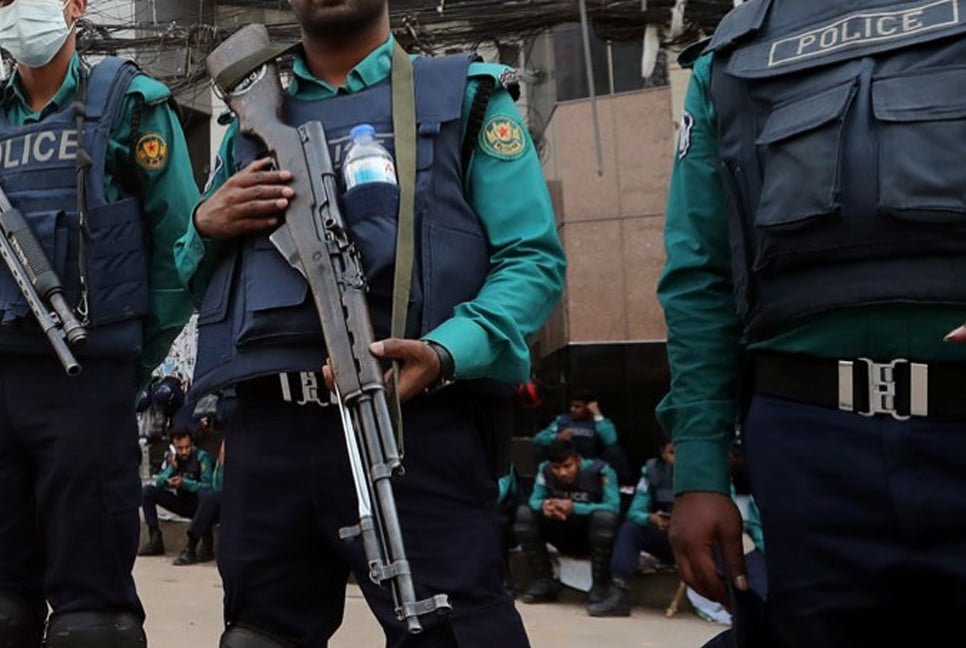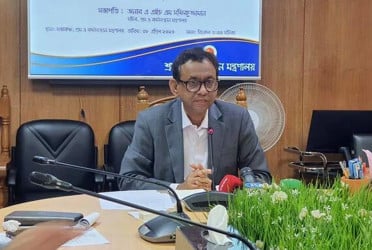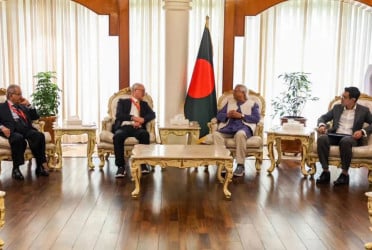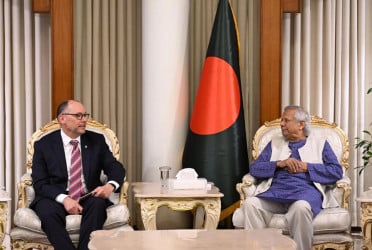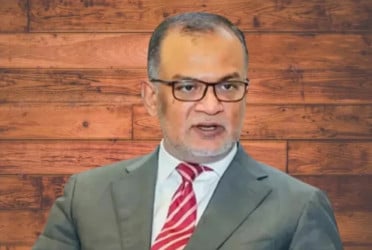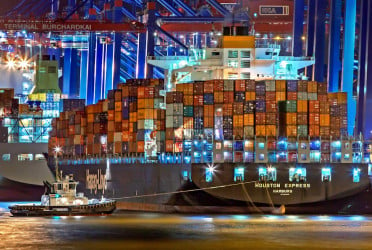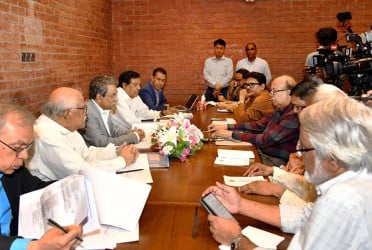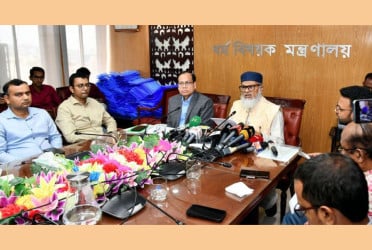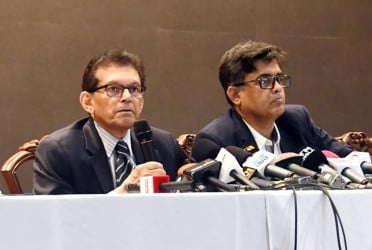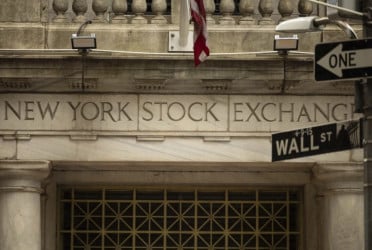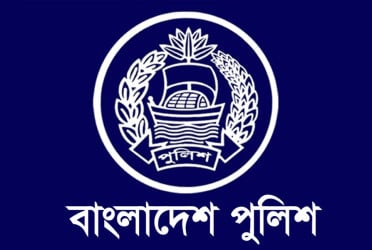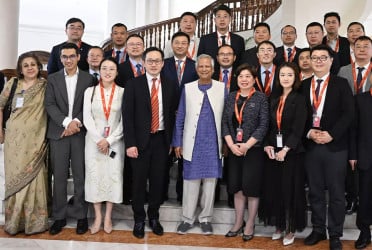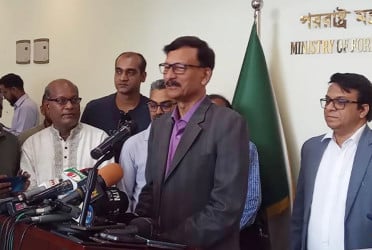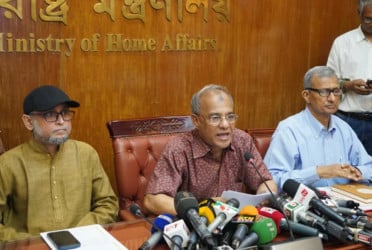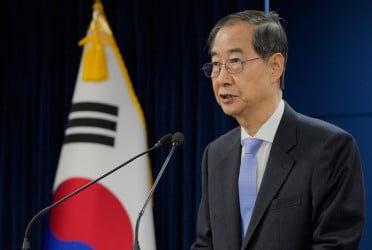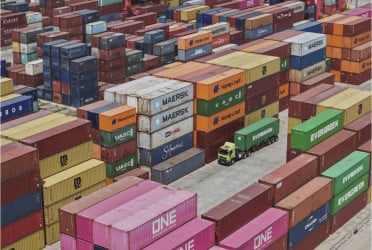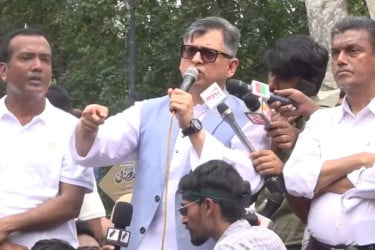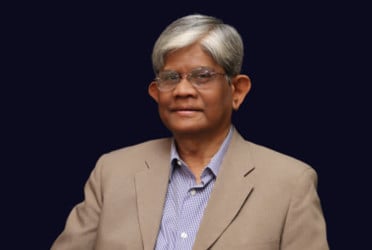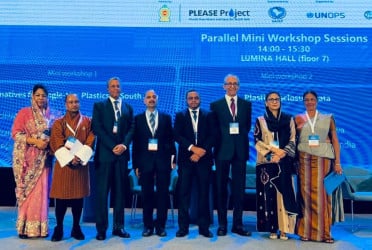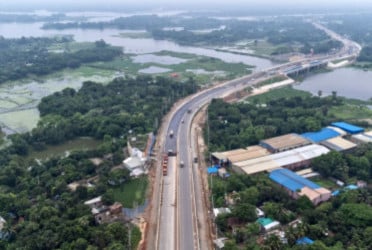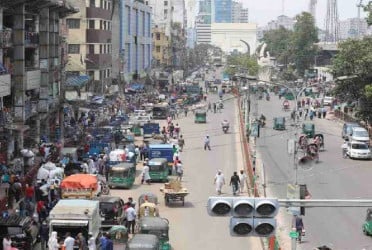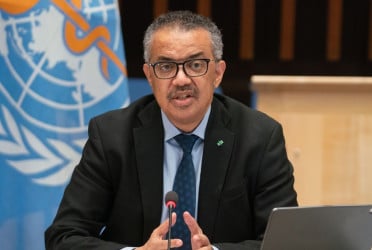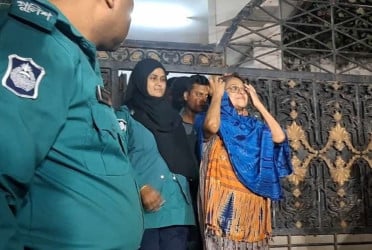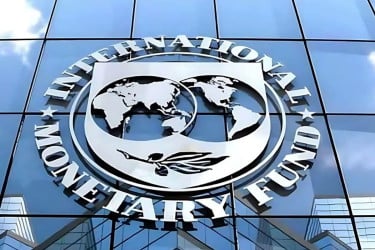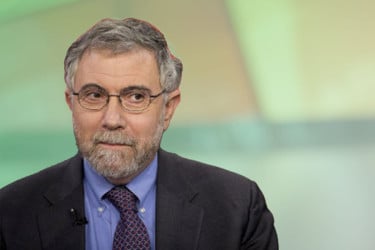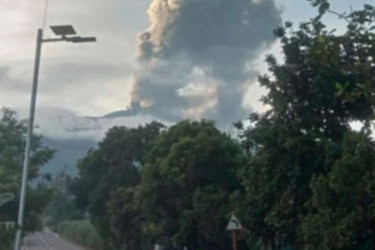The Bangladesh Bank or the Financial Intelligence Unit (BFIU) cannot appoint a receiver to any business entity on its own. If a receiver needs to be appointed, it requires a lengthy process.
However, in recent days, several media outlets have reported that receivers have been appointed to 10 business entities, citing BFIU sources.
In response, both the BFIU and Bangladesh Bank have clarified that no such action has been taken by them.
A.K.M. Ehsan, Acting Head of the BFIU, stated, "A receiver was appointed by the court for a business group. However, the process is currently suspended due to a petition filed by them. Investigations are ongoing regarding some other entities of that company. However, no decision has been made about appointing a receiver for any other business entity. In fact, the BFIU does not have the authority to make such a decision. If a court orders the appointment of a receiver, we will proceed accordingly, but there is no scope to take any action before that."
Another official from the BFIU explained that before appointing a receiver, at least five steps must be followed. Only after these steps can a receiver be appointed. The steps are as follows:
- Identifying suspicious accounts involved in money laundering;
- Summoning or seizing those suspicious accounts;
- Tracking the financial transactions to detect money laundering and referring the case to the ACC (Anti-Corruption Commission) or CID (Criminal Investigation Department);
- Filing a money laundering case through the ACC or CID in court;
- Finally, appointing a receiver to seize domestic assets under court orders and filing a case in international courts to recover money from abroad. This entire process must be followed to recover the assets.
So far, money laundering investigations have not been completed for any entity other than S. Alam Group and former Land Minister Saifuzzaman Javed . Therefore, no action is being taken against other institutions.
However, the government has appointed a lawyer to bring back the assets laundered by former Land Minister Saifuzzaman Javed.
Bangladesh Bank will not appoint a receiver or administrator for any company on its own initiative. However, such an appointment will be made if directed by the High Court, said Bangladesh Bank spokesperson Husne Ara Shikha.
She stated, "To appoint a receiver, a court order is required. So far, a high court directive has been issued for appointing a receiver for one industrial group. The central bank is taking steps in accordance with the law in this regard. Bangladesh Bank will not appoint a receiver on its own for any other industrial group or institution in the country."
According to Article 31 of the Constitution of Bangladesh, no illegal action shall be taken that causes harm to a person's life, reputation, or property. Furthermore, a person cannot be declared a criminal unless proven guilty.
The ongoing media trial against the country's top businessmen, industrialists, investors, and financial institutions has created widespread panic among the general public.
As a result, people are withdrawing their deposits from banks and financial institutions. Not only banks but various sectors of business have also experienced instability due to the media trial, leading to a crisis of confidence among businesses.
The President of the Bangladesh Knitwear Manufacturers and Exporters Association (BKMEA), Mohammad Hatem, stated, "Incorrect information was provided, leading to the formulation of wrong policies during the previous government. False or misleading news was disseminated in the export sector during that time, causing injustice. We urge everyone to adhere to the ethical standards of journalism to put an end to media trials."
The President of the Bangladesh Chamber Of Industries (BCI) and Chairman of Evince Group, Anwar-ul Alam Chowdhury (Parvez), stated, "Ensuring the free flow of accurate information is crucial. During the previous government's tenure, numerous incorrect data, including inflation rates, GDP, and population figures, were provided. As a result, policy formulation was negatively affected. Therefore, it is essential to avoid misinformation and ensure the availability of accurate data."
He further stated that Bangladesh Bank has already taken initiatives to bring back the laundered money, which is good news for most businesspeople.
This is because 98% of businessmen are not involved in money laundering. They would actually be pleased if the culprits are caught.
However, attention must be paid to ensure that the country's industries are not destroyed due to wrong policies, misinformation, or any other reasons. Once an industry is established, it becomes a national asset, and its protection is vital for the economy.
The former president of the country's apex business organization, FBCCI, Abdul Awal Mintoo, said, "Those who are creating employment opportunities through investment in the country have been the ones most victimized. To ensure employment for the unemployed, investment is necessary, but the environment for investment in the country is lacking. Investors are now facing multi-dimensional challenges."
The former president of FBCCI, Mir Nasir Hossain, stated, "The interest rate on bank loans has increased from 9% to 14-15%. In this situation, maintaining a sustainable business with such high interest rates is extremely challenging. Moreover, the regulations on loan defaults have been revised, and now, if installments are missed, a borrower will be declared a defaulter after 90 days. This is causing us concern. In addition to the rising interest rates, the supply of energy is not meeting the demand."
On August 5, Sheikh Hasina resigned from the position of Prime Minister and fled the country. This marked the end of 16 years of unprecedented misrule and autocracy by the Awami League.
On September 29, the government reconstituted the inter-agency task force to bring back laundered assets and manage the process. The Governor of Bangladesh Bank has been appointed as the chairperson of the task force, and the BFIU will provide administrative support to the task force.
Data shows that in the current situation, operational costs for businesses have increased by 30%. The interest rate on bank loans has risen repeatedly, surpassing 15%. Due to the ongoing crisis for almost two and a half years, the value of the dollar has increased by nearly 41%, leading to a 30% reduction in imports.
As a result, industrial production has contracted, and transportation costs have risen. The combined effect of these factors has made the import of raw materials for industries significantly more expensive.
Entrepreneurs say that misguided policies by various regulatory bodies and the issuance of numerous circulars at inappropriate times have led many business owners to default on loans.
They argue that these entrepreneurs have not voluntarily defaulted, but have been forced into it due to the government's policies. There is a growing demand for long-term policy support for these entrepreneurs on a priority basis to help them survive.
Otherwise, they warn that the country will face prolonged instability in employment and the economy.
The Chief Advisor and Economic Advisor have issued a stern warning to recover laundered money. In this regard, they have sought assistance from international organizations and ambassadors of various countries during their meetings.
Additionally, the Bangladesh Financial Intelligence Unit (BFIU) has started sending letters to various countries to gather information about the assets of individuals and institutions.
CID, Narcotics Control Department, National Board of Revenue (NBR), Customs, Department of Environment, BSEC, and the ACC are all working together to prevent and control money laundering.
Since Dr. Ahsan H. Mansur took office as the new Governor of Bangladesh Bank, the BFIU has suspended the bank accounts of several major industrial groups, including S. Alam and Beximco.
In addition, the bank accounts of their family members have also been frozen.
Source: KalerKantho
Bd-Pratidin English/ARK


